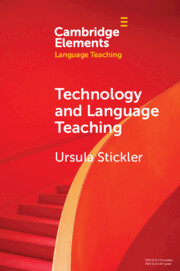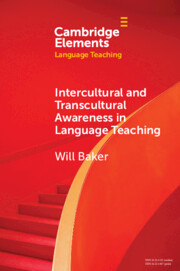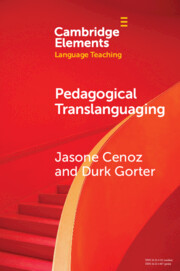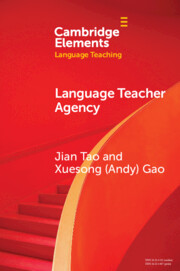Refine listing
Actions for selected content:
25 results in Cambridge Elements

Technology and Language Teaching
-
- Published online:
- 31 March 2022
- Print publication:
- 28 April 2022
-
- Element
- Export citation

Intercultural and Transcultural Awareness in Language Teaching
-
- Published online:
- 10 March 2022
- Print publication:
- 07 April 2022
-
- Element
- Export citation

Pedagogical Translanguaging
-
- Published online:
- 11 December 2021
- Print publication:
- 27 January 2022
-
- Element
-
- You have access
- Open access
- HTML
- Export citation

Language Teacher Agency
-
- Published online:
- 15 October 2021
- Print publication:
- 18 November 2021
-
- Element
- Export citation

Language Teacher Educator Identity
-
- Published online:
- 17 February 2021
- Print publication:
- 18 March 2021
-
- Element
- Export citation
